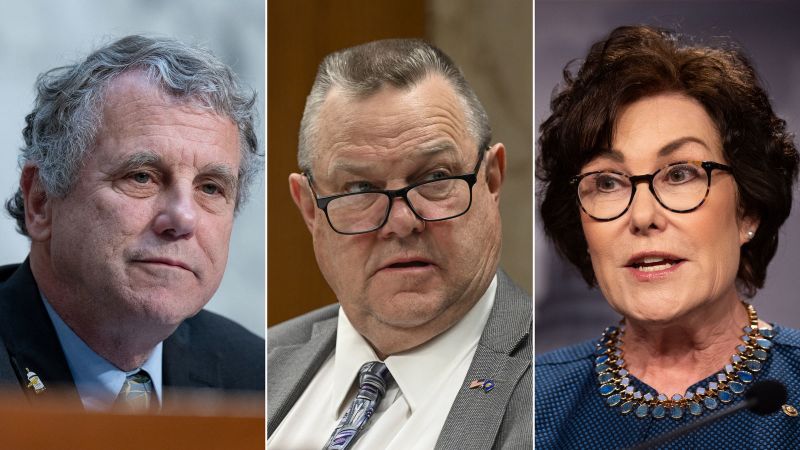Democratic Senators Sherrod Brown, Jon Tester, and Jacky Rosen have opted not to attend the Democratic National Convention in Chicago, choosing instead to focus on their campaigns in battleground states. Brown and Tester represent states that Donald Trump won by comfortable margins in 2016 and 2020, while Rosen represents Nevada, a hotly contested state for Democrats. The absence of these senators comes as Democrats try to maintain their narrow Senate majority, with a Republican pickup potentially swinging control of the chamber in November.
The reasons for each candidate’s absence from the convention vary. Brown’s campaign cited prior plans to be in Ohio for scheduled visits, while Tester planned to attend a fundraiser and concert in Montana. Rosen’s campaign emphasized that she supports the Harris-Walz ticket but is focused on her own reelection campaign in Nevada. Each candidate has their own priorities and commitments during this crucial period leading up to the election.
There is no definitive rule for whether candidates should attend their party’s convention, as the decision can vary based on individual circumstances. Democratic strategists note that a candidate’s time is a valuable asset, especially in a close race, and attending the convention may not necessarily provide the best use of that time. Skiping the convention does not necessarily indicate a lack of support for the party or its nominee.
Some have argued that for candidates like Brown and Tester, skipping the convention is more about prioritizing their campaigns than rejecting their party’s nominee. Both senators have cultivated unique brands that have aided them in tough races in the past. This year, Tester has emphasized his willingness to take a conservative approach, while Brown has maintained his support in Ohio as a populist Democrat appealing to a conservative voting base.
Democratic lawmakers and candidates who are attending the convention may be doing so for speaking opportunities that can help with their base voters and boost national fundraising. Those choosing to stay home likely believe that speaking at the convention would not significantly benefit their campaigns and would rather focus on local engagement. Even those attending may only be doing so for a short period before returning to their respective states to continue campaigning.
In conclusion, the decision to attend or skip the Democratic National Convention can vary for each candidate, with considerations related to campaign priorities, messaging, and strategic opportunities playing a role. The absence of key Democratic senators from battleground states underscores the importance of local engagement and prioritizing voters over national events. As the election approaches, these candidates must make choices that they believe will best serve their chances of success in November.


